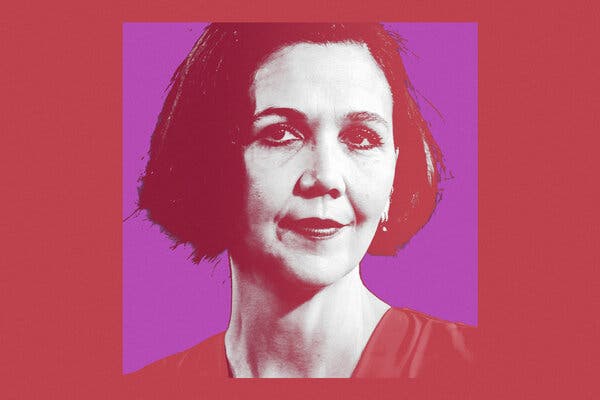Rewarding as it is, motherhood can be an uphill battle. In the pandemic, we heard this in the stories of mothers struggling to juggle child care and schooling with work and other responsibilities at home. But the pandemic simply lifted the curtain on an underrepresented reality for many parents. Actor, writer and director Maggie Gyllenhaal seeks to capture the messiness of motherhood in her new film “The Lost Daughter.” It’s an adaptation of the Elena Ferrante novel that explores the story of an “unnatural mother” named Leda, who finds parenting to be a “crushing responsibility.” Gyllenhaal imagined playing scenes of a mother ignoring her daughter’s cries or rejecting her injured child’s pleas for a kiss — things we’re taught “we’re not allowed to think or feel” — would be “radical” for a film, especially if women watched with their mothers, partners or children.
[You can listen to this episode of “Sway” on Apple, Spotify, Google or wherever you get your podcasts.]
In this conversation, Kara talks to Gyllenhaal about her transition to directing, how she got the infamously private Ferrante to offer her blessing for the film and why the domestic is “high art.” They also discuss the power and importance of women’s storytelling and whether anyone is an unnatural mother — which, as Gyllenhaal muses, begs the question: “Well, what is a natural mother?”
This episode contains strong language.
(A full transcript of the episode will be available midday on the Times website.)
Thoughts? Email us at sway@nytimes.com.
“Sway” is produced by Nayeema Raza, Blakeney Schick, Daphne Chen, Caitlin O’Keefe and Wyatt Orme, and edited by Nayeema Raza; fact-checking by Kate Sinclair; music and sound design by Isaac Jones; mixing by Carole Sabouraud and Sonia Herrero; audience strategy by Shannon Busta. Special thanks to Kristin Lin and Kristina Samulewski.




























